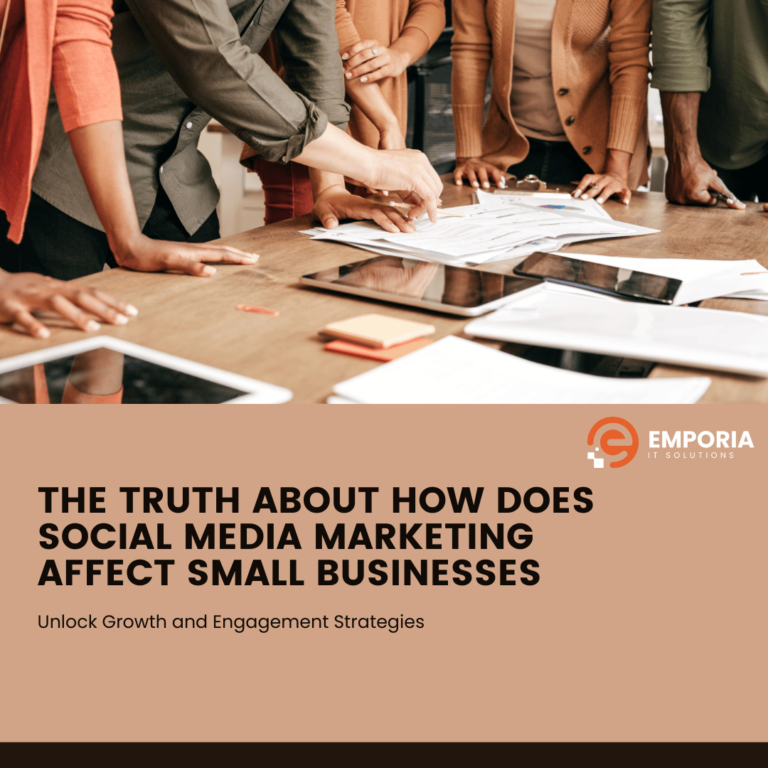In today’s digital landscape, having a robust online presence is crucial for businesses of all sizes. This is where a well-crafted SEO content marketing strategy comes into play. By integrating SEO with content marketing, businesses can significantly enhance their visibility, drive organic traffic, and ultimately, boost their sales. This blog will provide a comprehensive overview of SEO content marketing, its importance, and how Eemporia can help your business succeed in this domain.
SEO (Search Engine Optimization) is the practice of optimizing your website and content to rank higher in search engine results pages (SERPs).
This involves various techniques such as keyword research, on-page optimization, and acquiring backlinks.
Content marketing focuses on creating and distributing valuable, relevant, and consistent content to attract and engage a clearly defined audience.
Importance
Integrating SEO with content marketing is essential because it ensures that your content is not only high-quality and engaging but also discoverable by search engines.
- Increasing Visibility: Optimized content ranks higher in SERPs, making it easier for potential customers to find your business.
- Driving Organic Traffic: High-ranking content attracts more clicks and visits, leading to increased organic traffic.
- Building Credibility and Trust: Consistently producing valuable content helps establish your brand as an authority in your industry.
What is SEO Content Marketing?
SEO content marketing is the process of creating and optimizing content to rank higher in search engine results.
Key Components
The key components include:
- Keyword Research: Identifying the terms and phrases your target audience is searching for.
- Content Creation: Produce high-quality, valuable content that addresses the needs and interests of your audience.
- On-Page Optimization: Ensuring that your content is optimized for search engines through the use of meta tags, headers, and keyword placement.
- Link Building: Acquiring backlinks from reputable websites to improve your site’s authority and ranking.
How SEO and Content Marketing Work Together
SEO and content marketing are interdependent. While SEO focuses on optimizing content for search engines, content marketing ensures that the content is valuable and engaging for the audience.
- Maximizing Visibility: SEO techniques ensure that your content is discoverable, while content marketing ensures it is valuable and relevant.
- Driving Engagement: High-quality content attracts and retains visitors, while SEO ensures that this content reaches a wider audience.
- Improving Rankings: Consistently producing optimized content helps improve your site’s ranking in SERPs.
Benefits of a Strong SEO Content Marketing Strategy
A strong SEO content marketing strategy offers numerous benefits, including:
- Increased Organic Traffic: Higher rankings lead to more clicks and visits from search engines.
- Better User Experience: Optimized content is easier to navigate and more accessible, enhancing the user experience.
- Higher Conversion Rates: Engaging and valuable content helps convert visitors into customers.
- Long-Term Results: Unlike paid advertising, the benefits of SEO content marketing are long-lasting and sustainable.
By understanding and implementing a robust content marketing strategy, businesses can achieve significant growth and success in the digital world.
The Importance of SEO Content Marketing
1. Increased Visibility and Organic Traffic
A strong SEO content marketing strategy significantly boosts your website’s visibility and drives organic traffic. By optimizing your content for search engines, you ensure that your website appears in relevant search results, attracting potential customers who are actively searching for your products or services. This increased visibility not only brings more visitors to your site but also enhances the chances of conversions and sales.
2. Building Brand Credibility and Trust
SEO content marketing helps in building brand credibility and trust. When your content consistently ranks high in search results, it signals to users that your brand is authoritative and trustworthy. High-quality, informative content that addresses the needs and concerns of your audience further establishes your brand as a reliable source of information.
3. Cost-Effectiveness Compared to Other Marketing Strategies
SEO content marketing is a cost-effective strategy compared to traditional marketing methods. While it requires an initial investment in content creation and optimization, the long-term benefits far outweigh the costs. Unlike paid advertising, which stops generating traffic once you stop paying, SEO continues to drive organic traffic over time.
Steps to Develop a Strong SEO Content Marketing Strategy
1. Keyword
The foundation of a successful SEO content marketing strategy is thorough keyword research. Identify the primary keywords your target audience is searching for, as well as related LSI (Latent Semantic Indexing) keywords. This ensures that your content is comprehensive and relevant, increasing its chances of ranking higher in search results.
2. Content
Focus on creating high-quality, valuable content that addresses the needs and interests of your audience. This includes blog posts, articles, videos, and infographics that provide useful information and insights. High-quality content not only attracts visitors but also encourages them to share it, increasing your reach and visibility.
3. Optimizing Content
Optimize your content for search engines by using on-page SEO techniques such as meta tags, headers, and keyword placement. Ensure that your content is easily readable and accessible, with a clear structure and logical flow. This helps search engines understand and index your content, improving its chances of ranking higher.
4. Promoting Content
Promote your content through social media and other channels to increase its reach and engagement. Share your content on platforms where your target audience is active, and encourage them to engage with it by liking, sharing, and commenting. This not only drives traffic to your site but also signals to search engines that your content is valuable and relevant.
Common Challenges and How to Overcome Them
SEO Trends and Algorithm Changes
One of the biggest challenges in SEO content marketing is keeping up with the ever-changing landscape of SEO trends and search engine algorithms.
- Follow Reputable SEO Blogs: Regularly read blogs like Moz, search engine journals, and Backlinko to stay informed about the latest updates.
- Join SEO Communities: Participate in forums and groups on platforms like Reddit and LinkedIn where SEO professionals discuss recent changes and strategies.
- Use SEO Tools: Tools like Semrush and Ahrefs provide insights into algorithm changes and help you adjust your strategy accordingly.
Balancing Quality and Quantity of Content
Creating a balance between producing high-quality content and maintaining a consistent publishing schedule can be challenging. High-quality content requires time and effort, but consistency is key to keeping your audience engaged and improving your SEO. To achieve this balance:
- Create a Content Calendar: Plan your content to ensure a steady flow of high-quality posts.
- Repurpose Content: Turn existing content into different formats, such as infographics, videos, or podcasts, to save time while maintaining quality.
- Outsource When Necessary: If resources are limited, consider hiring freelance writers or agencies to help maintain content quality and consistency.
Ensuring Consistent Content Promotion
Even the best content won’t perform well if it’s not promoted effectively. Ensuring consistent content promotion across various channels is crucial. To enhance your promotion efforts:
- Leverage Social Media: Share your content on platforms like Facebook, Twitter, LinkedIn, and Instagram to reach a broader audience.
- Email Marketing: Use email newsletters to keep your subscribers informed about new content.
- Collaborate with Influencers: Partner with influencers in your industry to amplify your content’s reach.
Measuring ROI and Adjusting Strategies Accordingly
Measuring the return on investment (ROI) of your SEO content marketing efforts can be complex but is essential for refining your strategy. To effectively measure and adjust:
- Set Clear Goals: Define what success looks like for your content marketing efforts, whether it’s increased traffic, higher engagement, or more conversions.
- Use Analytics Tools: Tools like Google Analytics and HubSpot can help track key metrics and provide insights into your content’s performance.
- Regularly Review and Adjust: Continuously analyze your data and adjust your strategy based on what works and what doesn’t.

Best Practices for a Successful SEO Content Marketing Strategy
Tips for Maintaining a Strong Online Presence
Maintaining a strong online presence is crucial for the success of your SEO content marketing strategy. Here are some tips:
- Consistent Branding: Ensure your brand voice and visuals are consistent across all platforms.
- Engage with Your Audience: Respond to comments and messages promptly to build a loyal community.
- Regular Updates: Keep your content fresh and relevant by regularly updating old posts with new information.
Avoiding Common SEO Mistakes
Avoiding common SEO mistakes can significantly improve your content’s performance. Here are some pitfalls to avoid:
- Keyword Stuffing: Overusing keywords can harm your rankings. Focus on natural keyword integration.
- Ignoring Mobile Optimization: Ensure your content is mobile-friendly, as a significant portion of users access content via mobile devices.
- Neglecting Technical SEO: Pay attention to technical aspects like site speed, URL structure, and secure connections (HTTPS).
Future Trends to Watch in SEO and Content Marketing
Staying ahead of future trends can give you a competitive edge. Here are some trends to watch:
- Voice Search Optimization: With the rise of smart speakers, optimizing content for voice search is becoming increasingly important.
- AI and Machine Learning: Leveraging AI for content creation and personalization can enhance user experience and engagement.
- Video Content: Video continues to grow in popularity. Incorporating video into your content strategy can boost engagement and reach.
Wrap Up
In today’s competitive digital landscape, a robust SEO content marketing strategy is essential for enhancing online presence and driving organic traffic. By integrating SEO with content marketing, businesses can achieve higher visibility, build brand credibility, and provide a better user experience, all while being cost-effective compared to other marketing strategies.
At Eemporia, we specialize in helping businesses unlock the full potential of their online presence through data-driven social media marketing strategies. Whether you want to increase brand visibility, engage with your audience, or boost sales, our team of experts will create a tailored approach that meets your business goals. With a decade of experience in delivering real results, we transform your social media platforms into powerful tools for growth.
Elevate your social media presence with our expert strategies! Contact us today to start achieving real results with SEO optimization.
FAQs
1. Why is SEO important for marketing?
SEO is crucial for marketing because it helps businesses reach their target audience organically. It enhances brand visibility, drives traffic, and supports other marketing efforts like content marketing and PPC campaigns. SEO also builds trust and credibility with users, which is vital for long-term success.
2. When would it be important to use SEO in the content strategy implementation process?
SEO should be integrated at the beginning of the content strategy implementation process. This includes conducting keyword research to understand what your audience is searching for and optimizing your content accordingly. By aligning your content with SEO best practices from the start, you increase the chances of ranking higher in search results and attracting more organic traffic.
3. Which is the best strategy: SEO or content marketing?
Both SEO and content marketing are essential and work best when combined. SEO focuses on optimizing your website to be found by search engines, while content marketing involves creating valuable content to engage and educate your audience. Together, they enhance your online presence and drive more traffic to your site.
4. Does every company need SEO?
Yes, every company can benefit from SEO. Whether you’re a small local business or a large multinational corporation, SEO helps improve your online visibility, attract more customers, and stay competitive in your industry.
5. How important is SEO for local businesses?
SEO is particularly important for local businesses as it helps them appear in local search results, making it easier for potential customers in the area to find them. Local SEO strategies, such as optimizing Google My Business listings and using local keywords, can significantly boost visibility and drive foot traffic to physical locations.







